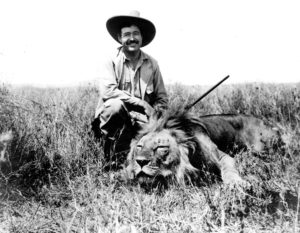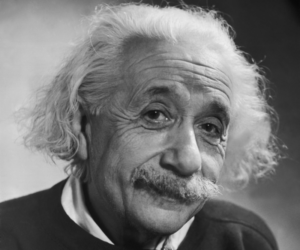The unconscious personality can best be described as an extraverted sensation type of a rather low and primitive order. – C.G. Jung
With this article, we continue our series on the “shadow” or “inferior” types.
Realistic Sensation
Extraverted sensation is the type most fully oriented to what we normally think of as “real”–sensual perception of the tangible world at large.
“No other human type can equal the extraverted sensation type in realism. His sense for objective facts is extraordinarily developed.” (CW 6, par. 606)
Details, abundant details, are accurately recognized and recorded. What is considered real is anything perceived through the five senses.
Enjoying the moment of sensuous reality–an engaging sunset, a fresh breeze in the morning, dinner in a fine restaurant–is a perpetual aim.
 Earnest Hemingway may have carried an orientation to this type, for he seemed compelled not just to write, which would be a more introverted activity, but also to experience the sensuous life to the full–enjoying a “clean well lighted place” in Paris, driving an ambulance in Italy, going on safari in Africa, fishing in the Caribbean, watching bull fights in Spain.
Earnest Hemingway may have carried an orientation to this type, for he seemed compelled not just to write, which would be a more introverted activity, but also to experience the sensuous life to the full–enjoying a “clean well lighted place” in Paris, driving an ambulance in Italy, going on safari in Africa, fishing in the Caribbean, watching bull fights in Spain.
Extraverted sensation engages an individual with life–life in the moment and life lived “out loud” in the world.
Extraverted Sensation in the Shadow
When this orientation is submerged in favor of other conscious lead types (often introverted intuition), then it acquires special oppositional attributes that we could consider primitive or undeveloped.
A person might find it difficult to stay grounded, to stay in close touch with the concrete facts of practical life. The joke goes: “If you tell him to hit the ground, he’ll miss.”
Details may be hazy, overgeneralized, and ambiguous. The individual would be less aware of tangible detail and more aware of the holistic experience with images in the inner life.
 It is easy to envision Albert Einstein walking down a street in Princeton, NJ with his head figuratively in the clouds. So much engaged with ideas inwardly, he might lose track of the route to his destination. Extraverted sensation in the shadow is the weakness of every absent-minded professor.
It is easy to envision Albert Einstein walking down a street in Princeton, NJ with his head figuratively in the clouds. So much engaged with ideas inwardly, he might lose track of the route to his destination. Extraverted sensation in the shadow is the weakness of every absent-minded professor.
As the lesser “dumbling,” extraverted sensation in the shadow helps to oppose the lead types, lest they become overly one-sided. The opposition is primitive and undeveloped, instinctual and intemperate, but provides ample ballast to keep the “rarified” lead types tethered closer to earth.
“The unconscious personality can best be described as an extraverted sensation type of a rather low and primitive order. Instinctuality and intemperance are the hallmarks of this sensation, combined with an extraordinary dependence on sense-impressions. This compensates the rarefied air of the intuitive’s conscious attitude, giving it certain weight, so that complete ‘sublimation’ is prevented.” (CW 6. par. 663)
Should the lead type completely sublimate extraverted sensation as a shadow type, extraverted sensation will orchestrate its revenge, seeking to destroy all that the lead type most values. In the next article, we will consider this destructive response to extreme one-sidedness.

